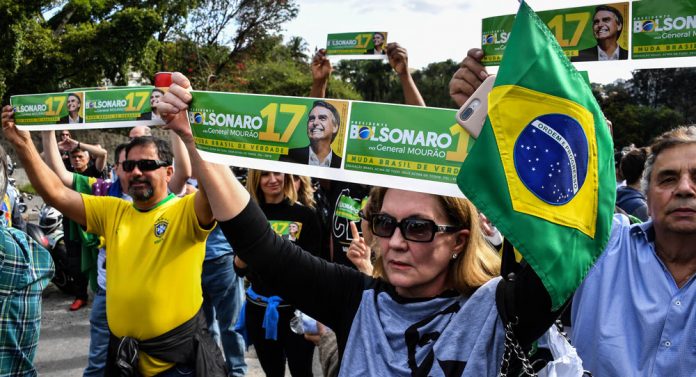The rapid rise of Brazil's new far-right leader Jair Bolsonaro may have surprised some observers but it did not come out of thin air. His success follows years of support from powerful social movements.
Such groups have increasingly found a voice in countries from Poland to Thailand to India – their influence coming from ordinary people rather than politicians.
Their rise is a crucial part of the turn towards more conservative politics in many countries around the world over the past few years.
Often, right-wing populism is seen as being brought about by new political parties or charismatic leaders. Think of Hungarian Prime Minister Viktor Orban – who presents himself as the defender of his country and Europe against Muslim migrants.
But the reality is that the role of grassroots movements is often central.
This has been brought about by what is often described as "civil society" – citizens' groups or organisations with a particular aim, whether that's saving a school from closure or overthrowing a regime.
For years, civil society has tended to be seen as liberal: supportive of human rights, democratic reform and the protection of minorities. Often, it is still these "progressive" causes that appeal to younger activists.
But today, civil society involves an increasingly diverse mix of people and political goals, with those on the right gaining traction.
Many of these conservative groups share a belief in "traditional" values – those often associated with:
- religious beliefs
- community
- national identity
- protection against immigration
- support for the family unit
Of course, there is also much that divides conservative civil society. While most groups favour democracy and work within mainstream politics, a small number are more disruptive and sometimes even violent – as is the case among groups on the left.
Whatever the differences, research by Carnegie Europe shows that there are many countries where conservative civil society has had a key role in shaping domestic events:
- In Brazil, a broad coalition of conservative groups helped push President Dilma Rouseff out of power in 2016, amid protests about widespread corruption
- Ukraine has seen radical national activists protest against Russian interference, while socially conservative groups focused on religious and family values have also grown
- In Thailand, conservative social movements seen as anti-democratic have helped to underpin military rule
- In India, Hindu nationalists have gained influence as supporters of Prime Minister Narendra Modi's policies, including moves to strip four million people of citizenship
…



